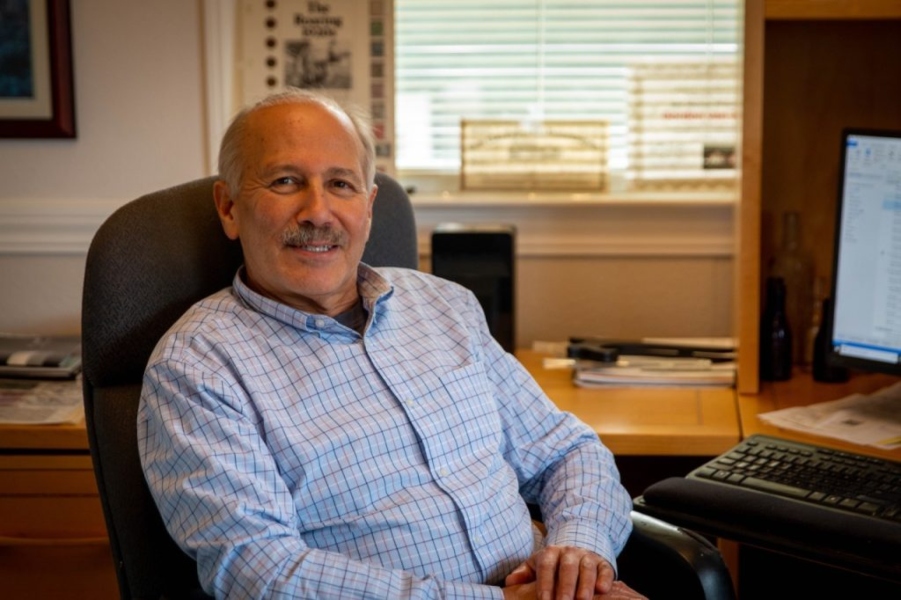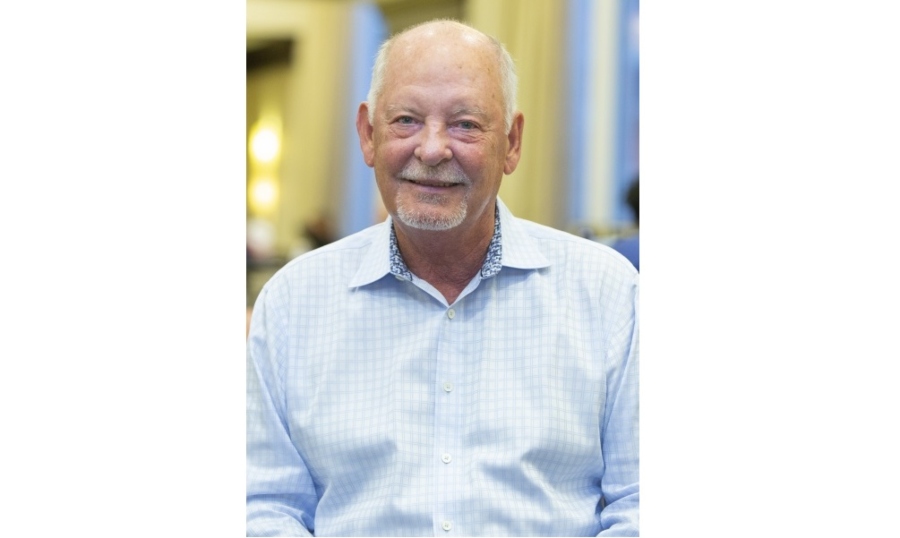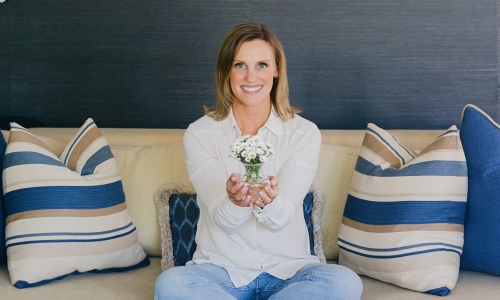Upstart integration firm Daisy has somewhat replicated the path of its namesake flower as it has blossomed and burst into the custom integration market this year. The seeds were planted last year and germinated this January with the announcement of the company’s franchise model, and virtually every month Daisy has gained momentum with major news.
Now a little more than halfway through the year, the franchise-model business just keeps growing, well… like daisies. In February, the Costa Mesa, Calif., company shared that it had converted a location Connecticut to go with its flagship Southern California operations. In March, Daisy raised eyebrows with its conversion of Silicon Valley-based integration firm cyberManor and also launched a Florida location.
In May, Daisy announced its DAVCO franchise in Fairfield, Conn., acquired Integrated Lifestyle, Inc. The next month, Daisy scooped up Bay Area-integration firm A Shade Above.
Meanwhile, in other operations-related moves announced in May and June, the company has partnered with recruitment and hiring specialist PrepTECH to feed potential job candidates; hired industry icon Richard Glikes fresh from his run at Azione Unlimited to be a consultant; and secured an $11 million funding round.
Of course, it also must be pointed out that Daisy is achieving this rapid rise with a woman, Founder and CEO Hagan Kappler, at the helm in an overwhelmingly male industry. Even with the variety of integration businesses CE Pro has profiled in its three decades, when females do appear on the cover it is typically with their husband co-owner — yet another way Kappler, an outsider to the industry, and Daisy stand out from the crowd.
Leveraging Corporate Background for Daisy’s Fresh Approach to Integration
Unlike many dealers whose path to integration business owner stemmed from a passion for audio and video, Kappler came to the residential integration sector armed with an impressive résumé full of big brands.
Following education at prestigious Williams College in Massachusetts and the University of Virginia Darden School of Business, she started in New York City at Goldman Sachs and McKinsey & Company.
From there, Kappler’s career included stops at Starbucks, United Technologies (whose myriad brands include Carrier, Pratt & Whitney, Otis), Ingersoll Rand, the Terminix and Merry Maids brands at ServiceMaster, and Threshold Brands, another franchise services company.
“So from coffee beans to jet engines, go figure,” she says of the transition from Starbucks to UTC.
At Starbucks, Kappler worked in category management as part of the coffee team focused on strategy and innovations and launched the ubiquitous Seattle brand’s Blonde Roast. After relocating to the Northeast and spending one winter there while at UTC, she and her expanding family happily headed South to the Charlotte, N.C., area after Ingersoll Rand recruited her.
She was working with various business unit presidents on strategies for numerous brands including Ingersoll’s nascent Nexia home technologies division.
“Also, I ended up running all of their M & A, so I was doing acquisitions for these business units — just tuck-ins and roll-ups — but then also working on bigger transformational strategies,” Kappler says.
She got a good education in the franchise ownership model and subscription services business opportunities when she joined ServiceMaster, which owns a number of home services and commercial services brands that are franchised and possess national name recognition. Again, Kappler assisted on mergers & acquisitions.
These areas have fueled her vision for Daisy as this custom integration franchise juggernaut that is now becoming reality. “That was my first experience, both to home services through Merry Maids, but also exposure to Terminix and franchising,” she says.
“And again, I saw a beloved brand like Starbucks. Merry Maids has a national footprint over 600 locations. Terminix is a $2 billion business.”
A Helping Hand for Small to Medium Businesses
Despite the national brand recognition element and the large-scale potential of franchising, Kappler equates the individual branches as small-to-medium businesses. That fits right in with the industry’s major demographic.
“If you think about franchising, it’s really helping small businesses with whatever challenges they’re facing, and trying to do that in a national scale,” Kappler explains.
“I think one of the benefits of franchising is you still get to be that local operator. It’s still your company, your employees, your relationships, your friends, your Little League team that you’re sponsoring. But you have the confidence of a full support team behind you in terms of HR and finance and technology, right?”
It was at Threshold Brands, a company backed by big private equity firm Riverside, a well-known firm in the franchises and home services sectors, where Kappler’s vision really came into focus. Threshold owned a stable of franchise service providers, and she soaked up tons of real-world education in franchises and services.
“They were sort of a startup of other startups, which really appealed to me to get to build something kind of from the ground floor,” Kappler says. “They were educating me about what I needed to know, and I was trying to bring some fresh approaches and strategies.”
Custom Integration Firms Fit Blueprint for Franchise Model
Beyond her experience working on Nexia, the light bulb that went off in her head to target the home electronics industry came when she thought about all the other services people pay for, including some on a subscription basis such as pest control, house cleaning, and landscaping maintenance.
“I started to think about my time back at Ingersoll Rand, and that [Nexia] business that we had worked on,” Kappler recalls.
“And because I was looking around at all this $700 billion market, all these home services companies, and I’m thinking, where’s the home technology business? Why isn’t there a national brand in home automation?”
She notes that it was a good question, especially during the pandemic when she, her Marine husband, and four children like millions of others were sharing a strained home network and sought upgrades to their media systems and outdoor technologies.
“I need that kind of ongoing service. I started to think, what if I took some of these principles from the experiences that I’ve had, plus this need that I personally feel, and create a national brand by tapping into some existing businesses, compiling those businesses together, learning about their best practices, putting those into playbooks, and then franchising the brand from there,” she outlines.
Kappler recalls when Threshold Brands had acquired a $6M HVAC shop in Indianapolis, spurring a successful scale-up experience.
“He did HVAC and plumbing, and we just franchised from there,” she says. “What we did was convert existing HVAC companies and plumbers into our brand, give them access to tools, our technology. I thought, let’s deploy a similar playbook here [for Daisy].”
High-Performing Integrators Say “Hey!” to Daisy
Following that playbook has produced impressive results out of the gate. Daisy has been building its integration branch portfolio by converting some of the most successful, CE Pro 100-type dealers with eyes on more — at least 26 markets by year’s end.
Matt Walin, principal of Brilliant AV and now branch manager of that Daisy brand, found the connection with Daisy highly appealing and a natural evolution of his long tenure in the integration industry. Daisy’s leadership experience in franchising and brand building especially attracted him to the new company — “a perfect fit,” he called it.

Five years ago, the integrator began to focus on its purpose for being in business in that “Brilliant AV is a franchise business providing capable technicians with a systemized and profitable smart home and smart office business without having to figure it out,” according to Walin.
“So, when I received the FedEx from Hagan stating that she had built home services brands in their career and are interested to learn more about my business for the purpose of creating Daisy, a nationwide brand, I was thrilled,” Walin recalls.
“She came over to the design center, I gave her the tour and showed her our ‘10-Year Target’ to be a franchise business. She responded, ‘Matt, how would you like to do that in 10 weeks?’ And so we began the journey, that is now Daisy.”
The opportunity to solve the complexity, ever-changing technology, and evolving business model is ripe for a leader like Daisy to raise the tide for the custom integration industry, Walin asserts.
“Transitioning from a customer transaction for technology contracting to an ongoing client relationship providing enduring service and support that also provides technology contracting is the future,” he adds, referring to the DaisyCare customer service program.
“Like a pool guy, landscape maintenance company, house cleaning service, pest exterminator contractor… the future is having a technology support company to maintain the systems. They are no longer appliances, but an organism,” Walin says. “DaisyCare will be the support product that allows us to keep an engaged relationship with our clients, providing them ongoing service and support, plus new technology upgrades as needed.”
Daisy “Has Given Us the Racing Tires Our Company Needs”
Van Zuiden did seven months of due diligence (while Daisy did theirs) and Daisy’s differentiated plans for the custom integration channel lured in the veteran integrator.
“During our period of evaluating the business fit of our respective companies, it became clear to me that Hagan had a fresh perspective on how to create a successful, national footprint for custom installation companies,” he says.

“They were leveraging their experience and financial strength in established nationally recognized residential services businesses with the custom installation business, but they knew they first had to gain a comprehensive understanding of our business to bring these two business models together successfully.”
Daisy approached Van Zuiden at the end of July 2023, he recalls, with a letter indicating that Kappler was starting a nationally branded company for custom integration and smart home services. He notes that the letter included a very impressive slide deck about the company they were trying to build and how they planned to build it with the help of the custom integrator channel.
“Daisy was looking for a business they could partner with or acquire to form the flagship for building their first true national brand in smart home automation,” Van Zuiden says. “They chose cyberManor based on our tenure and experience, the breadth and depth of providers with whom we work, our reputation, our location, and our size, among other qualities.”
He says that just in the handful of months his company has converted to a branch, Daisy has added the following benefits for his company:
- Best in class employee benefits program, including medical, vision, dental, 401(k), profit sharing, and stock participation programs
- Employee recruitment platform for finding new employees
- An extensive CRM platform that unifies all of our independent software tools, including our accounting system
- A learning management platform that allows our technicians to leverage a single online source for product learning and troubleshooting for a majority of the key vendors that we currently support
- Professional marketing and human resource support
- National procurement and pricing programs
- 24/7/365 service coverage options
“We have been incorporating all of these value-added services and our staff has successfully embraced them,” Van Zuiden reports.
He contends that during the first 100 days it became clear to him that Daisy could help cyberManor grow and become more profitable in ways that would have been unaffordable or too challenging to do on its own.
“Pre Daisy, we had an engine that could go 100 miles an hour, but our wheels only let us go 30 miles an hour. Daisy has given us the racing tires our company needs to perform at its best,” he says.
Custom Integration Veteran Joins Daisy’s Journey
Daisy took another step forward when it brought on Glikes, another brand-building extraordinaire who could provide further guidance to Kappler and her team. Coincidentally, Glikes had recently announced he was exiting the daily operations for Azione Unlimited, the industry buying group he founded a dozen years ago and grew in importance and membership in the time since.
Glikes says as Daisy started talking to more dealers, the dealers would respond that the new integrator basically needed some industry street cred. Call Glikes, they suggested. Eventually, the trio connected in Orlando and continued the conversation for another three months to figure out the arrangement with Glikes.
“They’re a very interesting group,” Glikes says. “I have this little saying — smart people can solve problems. Well, our industry is a plethora of issues and problems, and they’re very smart and they have figured out a path to solve the majority of the large problems.”
Glikes says he had dinner with Kappler and got along really well. Then he met the rest of the team, and was impressed by the smarts and skills set that Daisy has cobbled together to tackle those solutions that need to be addressed.

“They come they come from service mentality. These are CEOs who looked at a new-to-them industry [differently]… there’s no standards in our industry. So, I think in our industry for someone to come in with a good plan, I enjoy,” he adds. “I’m a builder — it totally gets my juices going.”
Of course, as a well-connected person in the industry, Glikes also has the institutional knowledge about which companies to target near-term growth that previously was unheard of in this industry.
“I actually think what they’re going to do is raise the level of the industry. We desperately need to be looked at as a trade of sorts, and that’s not the case. They want 500 to 600 franchises,” he says. “I think they can get a lot done in a short time period, too. But over time, the experience that Hagan has from those big companies that get subscribers like pest control — that vision to bring to this industry I think is pretty fascinating.”
Kappler explains that the exploration process includes many factors that may weigh into consideration as much as simply a city’s population growth. She had been through a similar analytic process at Threshold.
“We had, I think, a sense for what the what attractive markets would be like Southern California, like Northern California. But we weren’t really holding ourselves back, we weren’t excluding markets if they didn’t hit all those criteria,” she says.
“Nobody here in Southern California really has a basement, so the home theater market is not as hot as it is in Indianapolis [for example]. If you want to be a home theater player, that’s probably one of the markets you want to be in.”
Kappler says that in terms of company org chart and titles, because it’s a startup everyone on the team still wears multiple hats. Within the overall company, certain people brought specific skills that could form a more cohesive, and expert, leadership group.
DaisyCare, for instance, is an exceedingly important part of the business model with lots of variables. Kappler points to the company’s areas in which it “really wants to get right for franchisees,” such as RMR service programs and a high-functioning technology stack for installers.
Plus, Daisy operates 10 support centers that focus on franchise owners’ pain points, such as a call center and field tech support.
“We really want to make sure we’re supporting that wonderful business and that team, rather than trying to overshadow it, and so it’s different for each one,” Kappler says. “But it takes time, so we’ll check in and make sure they’re doing OK.”
Daisy’s Future Aspirations Appear to Be in Bloom for the Custom Integration Industry
So where does Daisy go from here?
If Van Zuiden and Walin provide the testimonials, chances are Glikes may be right about the speed with which Daisy ramps up.
“To create the ideal attentive engagement for our clients requires an incredible and vastly skilled team,” Walin says. “Hagan and Dion have built the most impressive team I have ever worked with, plus obtained the investment required to change this industry.”
Van Zuiden is optimistic about the greenfield franchise opportunities and their potential for success. He cites:
- A long-term custom integrator has an established brand — a key ingredient in developing trust and referral business, critical to their long-term growth and success.
- A new integrator has no brand recognition; but if the Daisy integration brand becomes well recognized it would become a key element of their potential success.
- A long-term integrator has the skill to assess and clearly evaluate the tech needs of a client building a new home, upgrading a current installation, or servicing a current installation and then to develop a clear and accurate proposal to meet these needs.
“As our CI world of knowledge increasingly goes from what’s in our heads to becoming digitally stored and queried in a CRM and LMS systems, the need to know an answer in your head becomes far less important than knowing the right questions to ask,” Van Zuiden notes. “If Daisy can help the new custom installer with this very important front-end skill, it will go a long way to delivering a successful franchise model to greenfield businesses that are led by someone with the appropriate business and leadership skills.”
Kappler says that it really boils down to two main things that Daisy does to help lift its integrators.
“One is the power of the network, where now they’re not alone, they’ve got others. And that’s part of the criteria we use when doing an acquisition. Usually, if an owner is not really in a buying group or part of a network, or doesn’t do some sort of kind of best practice sharing, this probably won’t be a great fit for them,” she explains.
“Then the second is confidence, the benefit of knowing you’ve got this group of people who are cheering you on,” Kappler adds. “I think that just that confidence alone, it’s amazing to see what people are [capable of] when you’ve got someone who believes in you, maybe even more than you believe in yourself — it’s amazing what you can achieve.”







